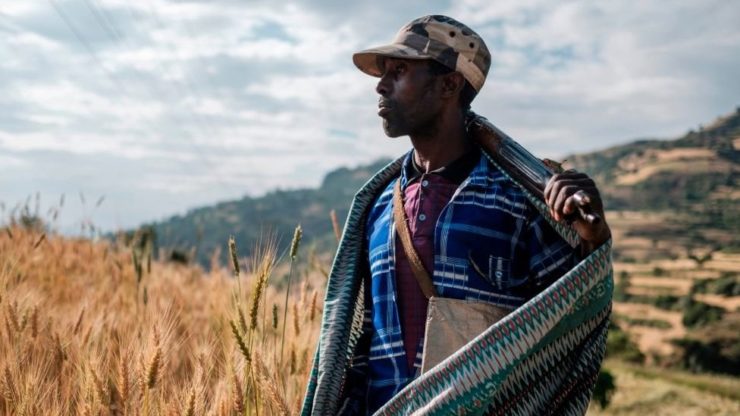
A Year After the Truce
On November 2, 2022, Ethiopia seemed to be on the cusp of a new beginning when the Ethiopian government and the Tigray People’s Liberation Front (TPLF) agreed to a ceasefire that ended a brutal two-year war. However, a year after this truce, the situation in Ethiopia remains fraught with challenges and uncertainty.
To understand the complexity of the situation, we must first look at the origins of the conflict. Ethiopia, a country with a diverse population and a complex political landscape, is characterized by its federal system of government, consisting of a federal government based in Addis Ababa and 11 regional states, most of which are organized along ethnic lines. The conflict in Tigray is just one aspect of a multifaceted struggle for power and autonomy in a country that is roughly the size of France and Spain combined.
The TPLF, which had held a dominant position in Ethiopia’s national politics for nearly three decades, was accused of autocracy and corruption during its rule. In 2018, widespread protests led to the TPLF’s ouster, and Prime Minister Abiy Ahmed came to power. His tenure began with a series of bold initiatives, including releasing political prisoners and signing a historic peace deal with Eritrea, earning him the Nobel Peace Prize. However, his reforms, including efforts to centralize the government, were met with resistance from the TPLF, which feared a loss of regional autonomy.
Tensions between the TPLF and the federal government escalated further when the 2020 federal and regional elections were postponed due to COVID-19 concerns. The TPLF viewed this delay as a power grab and responded with an attack on a government military base in Tigray. Subsequently, government forces, initially gaining the upper hand, captured Mekelle, Tigray’s capital, and Abiy declared victory. However, the TPLF, with support from Eritrean troops, reversed the situation, reclaiming Mekelle and expanding into neighboring regions, Amhara and Afar. Simultaneously, the Oromo Liberation Army (OLA) in the Oromia region formed an alliance with the TPLF, creating a formidable opposition against Abiy. The TPLF and OLA announced their intent to advance toward the capital, Addis Ababa, which heightened the security crisis.
The consequences of this protracted conflict have been dire for Ethiopian civilians. All sides involved have been accused of committing atrocities, leading to the displacement of over two million people and widespread suffering. Reports of daily deaths in Tigray due to a lack of food have emerged, and millions are at risk of starvation.
While the truce signed a year ago offered a glimmer of hope, it has not brought much-needed peace and stability to Ethiopia. Instead, the situation remains dire. Despite the ceasefire, violence continues in various parts of the country. Eritrean forces have been accused of committing killings, sexual violence, abductions, and pillage. In the Western Tigray Zone, an ethnic cleansing campaign led by authorities and Amhara regional forces has forcibly expelled Tigrayans.
Furthermore, the Ethiopian government’s response to these allegations, as well as the actions taken by international partners and organizations, have not been sufficient to address the ongoing human rights abuses. There is a lack of clear accountability and justice for the atrocities committed during the conflict. Tigrayans and other affected populations continue to face insecurity and a lack of access to basic services, including food and healthcare.
A year after the truce, the promises of peace and stability remain elusive for many Ethiopians. Despite the hopes that the ceasefire would lead to a more secure and prosperous future, the nation is still grappling with the aftermath of a devastating conflict. The ceasefire may have silenced the guns, but it has not provided the long-awaited peace.
In the Western Tigray Zone, an area marked by a history of ethnic tensions, the situation is far from stable. Reports of ethnic cleansing and forced expulsions of Tigrayans continue to emerge. The international community has called for the protection of the rights and safety of civilians, but the situation remains dire. The truce, signed with the hope of ending the suffering, has not yet delivered on its promise.
The humanitarian crisis, characterized by a lack of access to food and essential services, persists. The truce was expected to pave the way for the delivery of aid to those in need, but challenges and restrictions have hampered the efforts of humanitarian organizations. Millions of Ethiopians, particularly in Tigray, continue to face the threat of starvation. The international community’s commitment to alleviating the suffering of the Ethiopian people remains a critical and ongoing concern.
Accountability for the atrocities committed during the conflict is another area where the truce has fallen short. The victims of human rights violations are still awaiting justice. Despite the need for independent investigations and accountability for the perpetrators, progress in this regard has been limited. The international community must continue to pressure the Ethiopian government to deliver on its commitments to ensure that civilians are protected and that victims have access to justice.
Ethiopia’s journey to lasting peace remains uncertain. The ceasefire, though a sign of hope, has not yet translated into the peace and stability that the nation so desperately needs. The humanitarian crisis continues to threaten the lives of millions, and accountability for the atrocities committed remains a distant goal.
Ethiopia’s multifaceted conflict, deeply rooted in historical and ethnic complexities, requires sustained efforts from the international community to facilitate negotiations, provide humanitarian aid, and ensure that the suffering of the Ethiopian people comes to an end. The path to peace in Ethiopia is long and challenging, but it is a journey that cannot be abandoned. The international community must remain committed to finding a lasting solution to the crisis and supporting the well-being of the Ethiopian people. Peace, stability, and justice must be the ultimate goals for this troubled region.
Taut Bataut – is a researcher and writer that publishes on South Asian geopolitics, exclusively for the online magazine “New Eastern Outlook”.